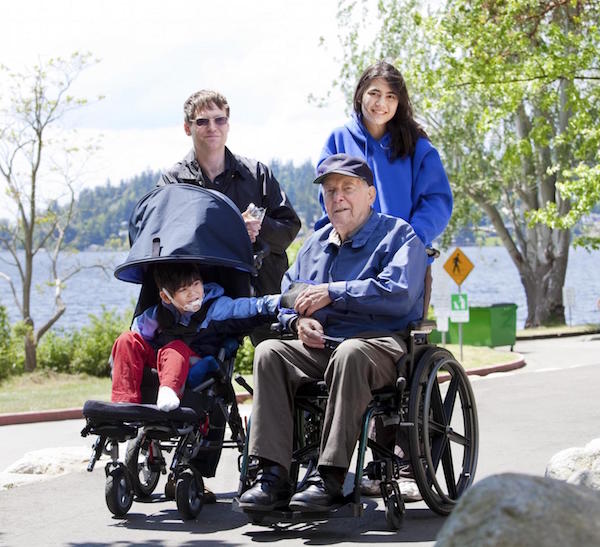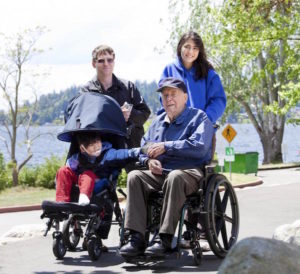Rod Genders is a senior Australian lawyer specialising in Wills and Estate Planning, Probate and Estate Administration, Trusts and Guardianship and Inheritance Claims and Contested Estates in South Australia. His boutique specialist law firm, which was founded on 1848, is one of the oldest and most respected in Australia. Rod is an international author and speaker. Rod is the 3rd generation of Genders in the law and has been practising specialised law since the mid 80’s. For over 10 years he served on the Council of the Law Society of South Australia and is a senior member of its Succession Law Committee. For 8 years Rod was a founding committee member of the South Australian branch of the London-based Society of Trusts and Estate Practitioners (STEP) and was the founding Chair of the international STEP Digital Assets Special Interest Group. For over 25 years Rod has chaired a private committee enquiring into the affairs of protected persons. He is a member of the Law Council of Australia, a member of the Notaries Society of South Australia and an associate member of the American Bar Association.
Parents of a child with special needs face unique challenges when planning their estates, and unless they address them correctly, they risk making mistakes that could have long-term, costly consequences for their child.
For example, they may make the child ineligible for important federal government benefits once he or she becomes an adult, and they may leave their child without the financial resources he or she needs to live the same kind of life they provided when they were alive.
The mistakes that parents of a special needs child often make when they are planning their estates can have long-term negative consequences for the child and significantly impact his or her lifestyle once the parents are deceased or become incapacitated and can no longer look out for their special needs son or daughter.

Special needs beneficiaries (often children) are those that need extra care because of a disability, such as autism, cerebral palsy, mental retardation, or other physical or mental condition. Many Australian parents have children with special needs and know all too well about the extra care they require, the government benefits they rely on, and the financial challenges they face.
Many families with special needs children need to rely on Medicare and Centrelink to help with the high cost of health care. This financial support can continue throughout the child’s life. Parents and grandparents of special needs children and adults may want to provide for their disabled loved ones in their Will but they do not want to risk losing the child’s eligibility for public benefits. A Special Disability Trust is the answer.
A Special Disability Trust (sometimes called a Special Needs Trust) allows a person with a physical or mental disability to have assets held in a particular type of government-approved trust and those assets will be excluded from consideration for purposes of qualifying for certain government benefits.
Expenses that can be paid for by the trust may be such items as special medical aids & equipment, medical & dental needs, medication, accommodation, entertainment & transportation needs.
Until March 2016, the Court fee for a Grant of Probate in Common Form in South Australia was a flat $1,114.00, regardless of the value of the estate.
This changed from 28th February 2016, but only the very smallest estates saw any reduction in the Court fee. Everyone else is now paying more. And then the State Government increased these fees again just 4 months later!
Since 1st July 2014 this new style of document in South Australia has replaced the older documents known as Medical Power of Attorney, Enduring Power of Guardianship and Natural Death Anticipatory Directive.
This Advance Care Directive document allows you to appoint one or more persons to act as your Substitute Decision Maker, to make decisions for you about your medical & health care treatment and accommodation issues if you’re unable to do so for yourself. This can make all the difference between ensuring your wishes are met in very stressful times, and having treatment and care almost forced upon you against your wishes.
An Advance Care Directive is a legal form that allows people over the age of 18 years to state their wishes, preferences and instructions for future health care, end of life, living arrangements and personal matters and/or
An Advance Care Directive cannot be used to make financial decisions. This requires a different document known as a Power of Attorney.
For a long time the official retirement age in Australia was 65 for men and 60 for women.
This was gradually changed to be 65 for everyone. Then the Labor Government increased it to 67 and in April 2014 the Federal Liberal Treasurer Joe Hockey announced the Government’s intention to increase the age of eligibility for the aged pension to 70.
The rationale behind this is that we are living longer on average, and the social security system cannot sustain the current level of payments for a longer period, especially with relatively fewer Australians remaining in the workforce.
When you are going through a separation, you need to update your estate planning documents to protect yourself, your children & family and your assets. Here are some important matters to consider after a relationship breakup.
Who Looks After Your Kids if You Cannot
- There may come a time when an unmarried, separated or divorced parent is unable, owing to physical or mental incapacity, to take care of his or her minor children. If a parent dies, the minor children will need a guardian. In these circumstances, those caring for the children will need direction—as will the Courts. By writing and executing a Will that includes instructions on guardianship, a parent may select someone with the legal authority to act for minor children and assume control over the assets of the children.
When you are going through a separation, you need to update your estate planning documents to protect yourself, your children & family and your assets. Here are some important matters to consider after a relationship breakup.
Other Documents in Addition to Your Will
- After separating, you should create a new Will. You should also review your powers of attorney, advance directives, trusts, proxy, delegation, etc. You may well need to formally revoke these important legal documents, so that your ‘ex’ cannot continue to control aspects of your life. However to be valid, these ‘revocation’ documents must be communicated to the individuals whom you had previously appointed, so these are not as confidential as the Will.
When you are going through a separation, you need to update your estate planning documents to protect yourself, your children & family and your assets. Here are some important matters to consider after a relationship breakup.
Intestacy
- If you do not write a Will, the Government has already written one for you – but you might not like what it says.
- When you die without a valid Will, that is called ‘intestacy’. The law of the State where die will determine who gets what. Be careful. Not only does this law change from place to place, it also changes from time to time.
- In certain cases your assets might even go to the Government itself!
Winston Churchill famously said “Those who fail to learn from history are doomed to repeat it”.
As the oldest law firm in South Australia, and specialising in Trusts, Wills, Estate Planning and Administration of Deceased Estates, we frequently encounter examples of people failing to take the proper steps to create an estate plan that will work properly when the time comes. Some people allow their families to learn the hard way, and fail to shield their families from costly legal messes.
Since 1900, life expectancy for Australians has increased by over 30 years. The average life expectancy of a newborn girl used to be 51 years. Now it is 84 years. But how do we care for our elderly relatives once they begin to lose the ability to care for themselves?
Over the past 125 years there have been massive changes in our health and lifestyle. What Australians now die of, and the age at which they die, is very different to what it used to be. Up until 1932, infectious and parasitic diseases caused at least 10% of all deaths each year, with death rates from these diseases highest among the very young and very old. Improvements in living conditions, such as better water supplies, sewerage systems, food quality and health education, have led to overall lower death rates and longer life expectancy at all ages.



















